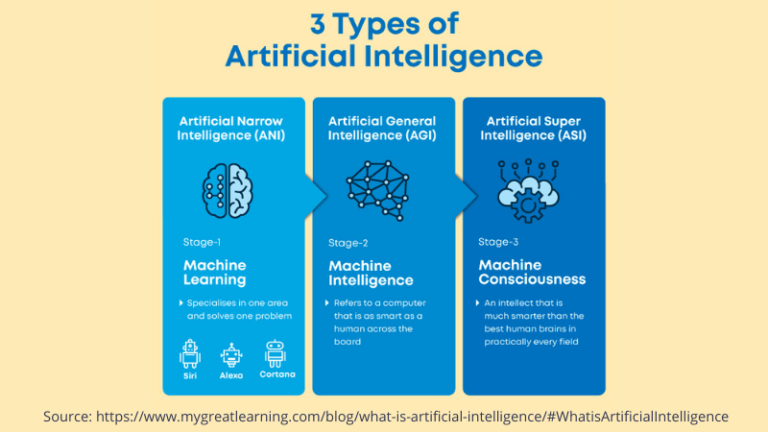The Social Impact Of AI: How Is AI Impacting Society, Both Positive And Negative Ways?

Artificial Intelligence (AI) has become an integral part of our daily lives, with its impact on society being felt in numerous ways. From improving efficiency and productivity in various industries to transforming the way we communicate and interact, AI has undoubtedly brought about significant changes. However, this technological advancement also raises concerns regarding privacy, job displacement, and ethical implications. In this article, we will explore the social impact of AI, examining the positive and negative ways in which it is shaping our society and addressing the crucial questions surrounding its integration into our lives.

Positive Impacts of AI on Society
Improving Healthcare Services
AI has the potential to revolutionize the healthcare industry by improving the quality and efficiency of healthcare services. With AI-powered technologies, healthcare professionals can access more accurate and timely diagnosis, leading to improved patient outcomes. AI algorithms can analyze vast amounts of medical data, including patient records, lab results, and imaging scans, to identify patterns and make accurate diagnoses. This can help healthcare providers make informed treatment decisions and personalize care for each patient. Additionally, AI can assist in predicting disease outbreaks and managing healthcare resources effectively.
Enhancing Education and Learning
AI is transforming the field of education by enhancing learning experiences and enabling personalized education. Intelligent tutoring systems can adapt to individual student needs, providing customized learning materials and feedback. AI algorithms can analyze student performance data to identify areas of improvement and provide targeted interventions. With the help of AI, educators can create interactive and immersive learning experiences, leveraging technologies such as augmented reality. AI can also automate administrative tasks, freeing up teachers’ time to focus on student engagement and personalized instruction.
Increasing Efficiency in Businesses
AI is revolutionizing the way businesses operate by automating repetitive and mundane tasks, leading to increased efficiency and productivity. With AI-powered automation, companies can streamline their supply chains, optimize inventory management, and reduce operational costs. AI algorithms can analyze large datasets to identify patterns and trends, enabling data-driven decision making. Predictive analytics can help businesses accurately forecast demand and make strategic decisions. AI-powered chatbots and virtual assistants can also enhance customer experiences by providing quick and personalized support.
Streamlining Communication and Connectivity
AI technologies are transforming communication and connectivity by enabling more efficient and effective interactions. Natural language processing and sentiment analysis algorithms can analyze and understand human language, facilitating cross-cultural communication and breaking language barriers. Voice assistants and real-time language processing systems enable seamless voice-to-text communication, making communication more accessible and inclusive. AI-powered social media and content moderation tools can help filter and moderate user-generated content, ensuring a safer and more positive online environment.
Boosting Economic Growth
AI is a driving force behind economic growth, fueling the emergence of new industries and job roles. The increased productivity and efficiency brought about by AI technologies lead to economic gains. AI-powered innovations and market competition drive technological advancements and foster economic development. Investments in AI research and development contribute to job creation and stimulate economic growth. However, it is important to address the potential impact of AI on labor markets and ensure that policies and safety nets are in place to support workers affected by automation.
Advancing Scientific Research and Discoveries
AI is revolutionizing scientific research by accelerating data analysis and insights. AI algorithms can analyze vast amounts of data, helping researchers make new discoveries and gain deeper insights into complex problems. In fields such as drug discovery, genomics, and climate change research, AI is enabling scientists to make breakthroughs and drive innovation. AI is also being used in astronomy and space exploration to analyze astronomical data and simulate complex astronomical phenomena. By enhancing scientific research and aiding in the discovery process, AI is advancing our understanding of the world around us.
Improving Transportation Systems
AI is transforming transportation systems by improving safety, efficiency, and sustainability. AI-powered technologies can enhance autonomous vehicles’ capabilities, leading to safer and more reliable transportation. AI algorithms can analyze traffic data in real-time, optimizing traffic flow and reducing congestion. With the help of AI, transportation systems can become more efficient, reducing fuel consumption and carbon emissions. AI can also improve public transportation systems by analyzing data and optimizing routes and schedules. Overall, AI holds great promise in improving transportation systems and shaping the future of mobility.
Enhancing Personalized User Experiences
AI is enhancing personalized user experiences across various domains, from entertainment to e-commerce. With AI algorithms, companies can analyze user preferences and behaviors to tailor recommendations and personalized content. This enables users to discover relevant music, movies, products, and services, enhancing their overall satisfaction. Personalized user experiences not only improve customer satisfaction but also drive business growth and customer loyalty. AI-powered recommendation systems are becoming increasingly commonplace in platforms such as streaming services, online marketplaces, and social media platforms.
Empowering Individuals with Disabilities
AI technologies have the potential to empower individuals with disabilities, enabling them to lead more independent lives. Assistive technologies powered by AI, such as speech recognition and natural language processing, can assist individuals with communication difficulties. AI-powered prosthetics and exoskeletons can restore mobility and enhance physical capabilities for individuals with disabilities. Computer vision technologies can enable visually impaired individuals to navigate their surroundings. By leveraging AI, we can create inclusive environments and provide equal opportunities for individuals with disabilities.
Supporting Law Enforcement and Public Safety
AI has the potential to support law enforcement agencies in ensuring public safety and security. AI-powered surveillance systems can analyze video feeds in real-time, detecting suspicious activities and potential threats. Facial recognition algorithms can aid in identifying individuals, helping law enforcement agencies solve crimes and locate missing persons. AI algorithms can also analyze social media data to detect and prevent criminal activities. However, it is crucial to ensure that AI technologies are used responsibly, taking into account privacy concerns and addressing potential biases and discrimination.
Negative Impacts of AI on Society
Automation and Job Displacement
One of the main concerns regarding AI is the potential for job displacement and unemployment. As AI technologies automate repetitive and mundane tasks, there is a risk of certain jobs becoming obsolete. This can lead to unemployment and economic disruptions, particularly for those in industries heavily impacted by automation. It is crucial to proactively address the impact of AI on the workforce and develop strategies to reskill and retrain affected workers.
Ethical Dilemmas and Privacy Concerns
AI raises ethical dilemmas and privacy concerns regarding the collection and use of personal data. AI algorithms rely on vast amounts of data to make accurate predictions and recommendations. However, this raises questions regarding data privacy, consent, and potential misuse of personal information. It is important to establish transparent and ethical practices for data collection, ensuring individuals have control over their data and are aware of how it is being used.
Bias and Discrimination
AI algorithms can inadvertently perpetuate biases and discrimination present in the data they are trained on, resulting in biased outcomes. For example, biased data can lead to discriminatory decisions in areas such as job recruitment or loan approval. Addressing these biases requires careful consideration during the development and training of AI algorithms, with a focus on fairness and unbiased decision-making.
Lack of Human Interaction and Dependence
The increasing reliance on AI technologies can lead to a lack of human interaction and dependence on machines. This can have implications for interpersonal relationships and human well-being. It is important to strike a balance between the convenience and efficiency provided by AI and the need for human connection and empathy.
Inequality and Technological Divide
The widespread adoption of AI technologies can exacerbate existing inequalities and create a technological divide. Access to AI technologies and the benefits they offer may not be equally distributed, leading to inequalities in education, healthcare, and economic opportunities. Ensuring inclusive access to AI technologies is crucial to avoid deepening these inequalities.
Cybersecurity Risks and Threats
AI technologies can be vulnerable to cybersecurity threats and attacks. As AI systems become more interconnected and integrated into critical infrastructure, they become potential targets for malicious activities. It is imperative to enhance cybersecurity measures and develop robust defenses to protect against AI-related threats.
Loss of Cultural and Social Values
The increasing integration of AI technologies in society raises concerns about the potential loss of cultural and social values. Human judgment and subjective experiences are essential for decision-making processes that touch upon cultural and societal aspects. Overreliance on AI without human input may inadvertently result in the erosion of cultural diversity and social values.
Overreliance on AI without Understanding
As AI technologies become more advanced, there is a risk of overreliance on AI systems without proper understanding and critical thinking. Blindly accepting AI recommendations or decisions without questioning their underlying algorithms can lead to detrimental consequences. It is essential to foster AI literacy and educate individuals about the capabilities and limitations of AI technologies.
Unemployment and Economic Disruptions
AI-powered automation has the potential to disrupt labor markets, resulting in unemployment and economic instability. Certain job roles may become obsolete, requiring workers to adapt and acquire new skills. Policies and initiatives must be implemented to support workers through this transition and ensure the equitable distribution of the benefits of AI-driven automation.
Potential for Malicious Use
The advancement of AI technologies brings with it the potential for malicious use. AI systems can be harnessed for malicious purposes, such as cyberattacks, misinformation campaigns, or even the development of autonomous weapons. It is crucial to have appropriate regulations and safeguards in place to prevent the misuse of AI technologies and address potential security threats.
Ethical Considerations in AI Development
Transparency and Explainability
Developing AI systems that are transparent and explainable is crucial for fostering trust and understanding. Users should be able to understand how AI algorithms arrive at their decisions and have transparent access to the data used in training these algorithms. This promotes accountability and ensures that potential biases are identified and addressed.
Fairness and Unbiased Algorithms
Ensuring fairness and addressing biases in AI algorithms is essential to avoid perpetuating discrimination and inequality. Developers must consider the sources and biases present in the data used to train AI models and take measures to mitigate any potential biases. Regular evaluations of AI systems for fairness and bias can help identify and rectify any unintended discriminatory outcomes.
Data Privacy and Security
Protecting data privacy and ensuring data security are critical considerations in AI development. Developers need to implement robust measures to safeguard sensitive data and ensure compliance with relevant privacy regulations. Data anonymization and encryption techniques can be employed to protect individuals’ privacy while still enabling AI systems to function effectively.
Accountability and Responsibility
Developing AI systems requires a strong sense of accountability and responsibility. Developers should be proactive in addressing potential risks and harms associated with their AI systems. Clear guidelines and standards should be established to ensure accountability, and mechanisms for reporting and addressing any issues or concerns should be in place.
Avoiding AI Reducing Human Control
AI systems should be designed with the intent of augmenting human capabilities rather than replacing human decision-making. It is essential to avoid situations where AI systems reduce human control or autonomy, particularly in critical domains such as healthcare, transportation, and public safety. AI should serve as a tool for human decision-making, with humans ultimately retaining the final decision-making authority.
Addressing Potential Harms and Risks
AI development should prioritize identifying and addressing potential harms and risks. Developers should conduct rigorous risk assessments and take measures to mitigate identified risks. Continuous monitoring and evaluation of AI systems should be conducted to ensure their ongoing safety and ethical use.
Ensuring Ethical AI Governance
Establishing ethical AI governance frameworks and guidelines is essential for promoting responsible AI development and deployment. Organizations should adopt ethical principles and codes of conduct for the development and use of AI technologies. Collaboration between policymakers, researchers, industry experts, and stakeholders is key to ensuring ethical AI governance.
Promoting Collaboration and Openness
Promoting collaboration and openness within the AI community is crucial for addressing ethical considerations. Developers and researchers should share knowledge, experiences, and best practices to collectively address the ethical challenges associated with AI. Collaborative efforts can help establish ethical standards, foster transparency, and build public trust.
Developing AI for Social Good
The potential of AI for social good should be prioritized in AI development efforts. Developers should actively seek opportunities to leverage AI to address societal challenges, such as healthcare accessibility, quality education, environmental sustainability, and social equality. By aligning AI development with social good, we can ensure that AI technologies contribute positively to society.
Minimizing Discrimination and Bias
Developers must take active measures to minimize discrimination and bias in AI systems. This includes addressing biases in training data, regularly auditing AI systems for fairness, and being transparent about the steps taken to ensure unbiased outcomes. Collaboration with diverse stakeholders can aid in identifying and mitigating potential biases in AI systems.

AI and Healthcare Revolution
Enhanced Diagnosis and Treatment Options
AI technologies are enabling more accurate and timely diagnosis of diseases, leading to improved treatment options. AI algorithms can analyze patient data, including medical records and imaging scans, to identify patterns and potential diagnoses. This assists healthcare professionals in making informed treatment decisions and can lead to better health outcomes for patients.
Efficient Resource Allocation and Predictive Analytics
AI-powered technologies can optimize resource allocation in healthcare systems. By analyzing data on patient flow, resource availability, and historical trends, AI algorithms can accurately predict demand for healthcare services. This helps hospitals and healthcare organizations allocate resources efficiently, improving patient care and reducing wait times.
Precision Medicine and Personalized Care
AI is facilitating the development of precision medicine, an approach that tailors medical treatments to an individual’s unique characteristics. By analyzing genomic data, medical history, and other relevant factors, AI algorithms can identify personalized treatment options and predict treatment response. This personalized approach to healthcare can lead to more effective treatments and better patient outcomes.
Medical Image Analysis and Radiology
AI algorithms are increasingly being employed in medical image analysis, improving the accuracy and efficiency of radiology diagnoses. AI can analyze imaging scans, such as X-rays, MRIs, and CT scans, to detect abnormalities and assist radiologists in making accurate diagnoses. This can expedite the diagnosis process, reduce human errors, and improve patient care.
AI-Powered Drug Development and Discovery
AI technologies are revolutionizing the drug development process, accelerating the discovery and development of new drugs. AI algorithms can analyze vast amounts of biological and clinical data to identify potential drug candidates and predict their efficacy. This helps researchers optimize the drug development pipeline, reducing costs and time required for bringing new drugs to the market.
Remote Monitoring and Telehealth
AI-powered remote monitoring and telehealth solutions enable healthcare providers to remotely monitor patients’ health conditions and provide virtual care. With wearable devices and AI algorithms, vital signs and symptoms can be continuously tracked and analyzed, alerting healthcare professionals to any potential health issues. This improves access to healthcare services, particularly for individuals in remote or underserved areas.
AI-Assisted Surgeries and Robotic Systems
AI is transforming surgical procedures through AI-assisted surgeries and robotic systems. AI algorithms can analyze real-time data from surgical procedures, such as imaging scans and patient vitals, to assist surgeons in making precise decisions. Robotic surgical systems, powered by AI, can perform minimally invasive surgeries with high precision, reducing surgical complications and improving patient recovery.
Improving Mental Health Support
AI-powered technologies can play a significant role in improving mental health support. AI chatbots and virtual assistants can provide immediate support and resources for individuals experiencing mental health challenges. Natural language processing allows these AI systems to understand and respond empathetically to individuals’ emotional states, providing a valuable source of support and guidance.
AI Chatbots and Virtual Assistants in Healthcare
AI chatbots and virtual assistants are increasingly being employed in healthcare settings to provide personalized care and support. These AI-powered systems can assist patients in booking appointments, answering medical questions, and providing information about healthcare services. They help reduce the burden on healthcare staff and improve patient experiences.
Data-driven Healthcare Management and Planning
AI technologies enable data-driven healthcare management and planning. By analyzing vast amounts of healthcare data, AI algorithms can identify trends, predict disease outbreaks, and optimize healthcare resource allocation. This helps healthcare organizations plan and implement effective strategies to manage and prevent diseases, reducing the burden on healthcare systems.
AI in Education: Transforming Learning
Personalized Learning and Adaptive Education
AI technologies are transforming education by enabling personalized learning experiences. Intelligent tutoring systems can adapt to individual students’ learning needs and preferences, providing tailored learning materials and feedback. AI algorithms can analyze students’ performance data and adapt the curriculum to target specific areas of improvement, enhancing the learning experience.
Intelligent Tutoring and Educational Assistants
AI-powered intelligent tutoring systems and educational assistants assist students in their learning journeys. These systems provide personalized support, answering questions, explaining concepts, and guiding students through challenging topics. By leveraging AI technologies, students can receive immediate feedback and assistance, enhancing their understanding and retention of knowledge.
Automated Grading and Feedback Systems
Grading and providing feedback to students can be time-consuming for educators. AI-powered automated grading and feedback systems can alleviate this burden by analyzing students’ work and providing instant feedback. Educators can focus more on personalized instruction and engaging with students, while AI systems assist in grading and providing targeted feedback.
Augmented Reality and Immersive Learning Experiences
AI technologies, coupled with augmented reality, can create immersive and interactive learning experiences. Augmented reality applications allow students to visualize complex concepts, explore virtual worlds, and engage in hands-on learning. This enhances students’ understanding, engagement, and retention of knowledge, making learning more enjoyable and effective.
Smart Content Creation and Curation
AI technologies can assist in the creation and curation of educational content. AI algorithms can analyze vast amounts of text, images, and videos to generate educational materials tailored to specific learning objectives. Content curation platforms powered by AI can recommend relevant and high-quality educational resources, ensuring students have access to diverse and relevant learning materials.
Efficient Administrative Tasks
AI can automate administrative tasks, freeing up educators’ time to focus on teaching and student engagement. Tasks such as scheduling, grading, and record-keeping can be efficiently managed by AI systems. This streamlines administrative processes, promotes efficiency, and allows educators to devote more time to personalized instruction and student support.
Identifying Student Needs and Early Intervention
AI algorithms can analyze students’ performance data to identify patterns and indicators of academic challenges. By detecting early warning signs, educators can intervene and provide targeted support, helping students overcome learning obstacles. Early intervention promotes academic success and prevents students from falling behind.
Enhancing Accessibility and Inclusive Education
AI technologies can enhance accessibility and promote inclusive education. AI-powered assistive technologies can assist students with disabilities in accessing educational materials and participating in learning activities. AI algorithms can transcribe audio content into text, provide alternative formats, and enable students with disabilities to engage in educational experiences on an equal footing with their peers.
Revolutionizing Education Research and Analytics
AI is revolutionizing education research and analytics by enabling large-scale data analysis and sophisticated research methodologies. AI algorithms can analyze educational data to identify factors that contribute to student success, evaluate educational interventions, and inform evidence-based policies and practices. This enhances the field of education research and fosters data-driven decision making.
Addressing Education Disparities
AI has the potential to address education disparities by improving access to quality education and personalized learning experiences. AI-powered platforms can provide educational resources and support to students in underserved communities, bridging the education gap. By leveraging AI technologies, we can work towards creating a more equitable education system.
Business Transformation with AI
Automation of Repetitive and Mundane Tasks
AI technologies can automate repetitive and mundane tasks, enabling businesses to focus on more value-added activities. Tasks such as data entry, document processing, and inventory management can be automated, enhancing productivity and efficiency in business operations.
Optimizing Supply Chains and Inventory Management
AI algorithms can analyze supply chain data, identify patterns, and optimize inventory management. This can help businesses reduce costs, prevent stockouts or overstocking, and improve overall supply chain efficiency. AI-powered predictive analytics enable accurate demand forecasting, leading to more efficient supply chain planning and inventory management.
Enhanced Customer Experience and Personalization
AI technologies enable businesses to enhance the customer experience by personalizing interactions and offerings. AI-powered recommendation systems can analyze customer behavior and preferences to provide tailored product recommendations. Chatbots and virtual assistants powered by AI can provide quick, personalized customer support, improving customer satisfaction and loyalty.
Predictive Analytics and Data-driven Decision Making
AI-powered predictive analytics can analyze vast amounts of data to identify trends, predict customer behavior, and aid in data-driven decision making. By leveraging AI algorithms, businesses can gain insights into customer preferences, market trends, and demand patterns. This enables businesses to make informed decisions, develop effective strategies, and stay ahead of the competition.
Efficient Fraud Detection and Risk Management
AI algorithms can detect patterns and anomalies in large datasets, facilitating efficient fraud detection and risk management. By analyzing transactional data and customer behavior, AI systems can identify potential fraudulent activities or suspicious behavior. This enables businesses to take proactive measures in preventing fraud and mitigating risks.
AI in Sales and Marketing Strategies
AI technologies can optimize sales and marketing strategies, enabling businesses to target their efforts more effectively. AI-powered analytics can analyze customer data, identify customer segments, and predict customer behavior. This helps businesses tailor their sales and marketing campaigns, improving customer engagement and boosting sales.
Streamlining HR Processes and Talent Management
AI-powered technologies can streamline HR processes, from recruitment to talent management. AI algorithms can analyze resumes, screen candidates, and identify top talent more efficiently. AI-enabled platforms can automate administrative HR tasks, freeing up HR professionals’ time to focus on strategic initiatives and employee engagement.
Improving Productivity and Time Management
AI technologies can improve productivity and time management by automating repetitive tasks and optimizing workflows. With AI-powered tools, businesses can automate email responses, schedule appointments, and prioritize tasks. This increases efficiency, allowing employees to focus on higher-value activities and improving overall productivity.
AI-Powered Cybersecurity Solutions
AI technologies are crucial for developing robust cybersecurity solutions. AI algorithms can analyze network traffic, detect anomalies, and rapidly respond to security threats. AI-powered cybersecurity solutions can identify and mitigate potential risks, preventing data breaches and protecting sensitive information.
Business Process Automation and Optimization
AI-powered business process automation and optimization enable businesses to improve efficiency and reduce costs. AI algorithms can analyze business processes, identify bottlenecks, and propose optimizations. By automating repetitive tasks and streamlining workflows, businesses can achieve greater productivity and operational excellence.
AI and Communication Revolution
Natural Language Processing and Sentiment Analysis
Natural language processing (NLP) enables machines to understand and interpret human language. AI algorithms can analyze text data, extract relevant information, and understand sentiment. This has applications in customer service, sentiment analysis, and language translation.
Language Translation and Localization
AI-powered language translation technologies have made significant advancements, enabling more accurate and seamless translation between languages. AI algorithms can analyze and understand context, idioms, and cultural nuances, resulting in more accurate and natural language translations. This promotes cross-cultural communication and breaks down language barriers.
Voice Assistants and Voice Recognition
AI-powered voice assistants, such as Siri and Alexa, have become increasingly ubiquitous, simplifying daily tasks and providing assistance. These AI systems leverage voice recognition and natural language processing to understand and respond to vocal commands, enabling hands-free interaction and personalized user experiences.
Real-time Language Processing and Speech-to-Text
AI technologies enable real-time language processing and speech-to-text capabilities. AI algorithms can transcribe spoken language into text almost instantaneously, facilitating communication in real-time. This has applications in transcription services, live events, and accessibility for individuals with hearing impairments.
Automated Transcription and Captioning
AI-powered automated transcription and captioning systems are revolutionizing industries such as media, education, and accessibility. These systems can analyze audio or video files and automatically generate accurate transcriptions or captions. This improves accessibility, aids content comprehension, and enhances searchability.
AI in Social Media and Content Moderation
AI algorithms play a crucial role in social media content moderation. These algorithms can analyze user-generated content, detect and flag inappropriate or harmful content, and enforce community guidelines. AI-powered content moderation enables a safer and more positive online environment.
Customer Service Chatbots and Virtual Assistants
AI-powered chatbots and virtual assistants are revolutionizing customer service by providing immediate and personalized support. These AI systems can handle customer inquiries, provide information, and assist with basic problem-solving. By automating customer service interactions, businesses can improve response times and enhance the overall customer experience.
Facilitating Cross-cultural Communication
AI technologies facilitate cross-cultural communication by breaking down language barriers and enhancing understanding. AI-powered language translation technologies enable individuals from different linguistic backgrounds to communicate effectively, promoting inclusivity and global collaboration.
Breaking Language Barriers
AI-powered language technologies break language barriers, enabling individuals to interact and communicate across different languages. This has applications in international business, travel, and fostering cultural understanding. By facilitating cross-linguistic communication, AI technologies promote global connectivity and collaboration.
Advanced Communication Tools and Platforms
AI technologies have led to the development of advanced communication tools and platforms. Virtual meetings, collaboration software, and language translation applications leverage AI algorithms to enhance communication and facilitate global collaboration. This enables more efficient and effective communication across various domains.
The Economic Impact of AI
Increased Productivity and Efficiency
AI technologies increase productivity and efficiency by automating repetitive tasks, optimizing processes, and streamlining operations. By reducing manual labor and automating routine processes, businesses can allocate resources more effectively and improve overall productivity.
Automation and Job Market Disruptions
While AI-driven automation improves efficiency, it also poses challenges to the job market. Automation can lead to job displacement and changes in the demand for certain skills. As AI technologies continue to evolve, it is essential to develop strategies for reskilling and upskilling workers to adapt to the changing labor market.
Emergence of New Industries and Job Roles
The adoption of AI technologies has led to the emergence of new industries and job roles. AI-driven technologies create new opportunities for innovation and entrepreneurship. New job roles, such as AI specialists, data scientists, and automation engineers, are in high demand, contributing to job growth and economic development.
Accelerating Innovation and Market Competition
AI technologies accelerate innovation by enabling new discoveries, enhancing research, and fostering market competition. The use of AI in industries such as healthcare, finance, and manufacturing drives technological advancements and improvements in products and services. This creates a competitive environment and stimulates economic growth.
Investment in AI Research and Development
The economic impact of AI is supported by significant investments in AI research and development. Governments, businesses, and academic institutions are investing in AI technologies, driving innovation and advancements. These investments contribute to job creation, stimulate economic activity, and position countries and companies at the forefront of AI development.
Shifts in Workforce Skills and Education
The adoption of AI technologies necessitates shifts in workforce skills and education. To thrive in an AI-driven economy, workers need to acquire new skills, such as data analysis, problem-solving, and critical thinking. Education and training programs must adapt to equip individuals with the necessary skills to succeed in a technology-driven world.
Economic Disparities and Income Inequality
The widespread adoption of AI technologies can exacerbate economic disparities and income inequality. The benefits of AI-driven productivity gains may not be evenly distributed, leading to widening income gaps. It is crucial to implement inclusive policies, address wealth distribution, and ensure equitable access to the benefits brought about by AI technologies.
Adapting Labor Policies and Social Safety Nets
The economic impact of AI necessitates adapting labor policies and social safety nets to address the challenges posed by automation. Policies must focus on supporting workers affected by AI-driven job displacement, ensuring a smooth transition and providing opportunities for reskilling and reemployment. Social safety nets should be expanded to protect individuals facing economic disruptions.
Re-skilling and Training Programs
To mitigate the potential negative impact of AI on employment, re-skilling and training programs are essential. These programs provide individuals with the skills needed to adapt to changes in the labor market. By investing in lifelong learning and upskilling initiatives, countries can equip their workforce with the necessary skills to thrive in the age of AI.
Implications for Global Economy and Trade
The adoption of AI technologies has implications for the global economy and trade. AI-driven automation and advancements in manufacturing can disrupt global supply chains and impact international trade flows. Countries must adapt their trade policies and strategies to leverage the opportunities brought about by AI technologies and mitigate potential economic disruptions.
AI and Scientific Advancements
Accelerating Data Analysis and Insights
AI technologies are accelerating data analysis and insights in scientific research. By leveraging AI algorithms, researchers can analyze vast amounts of data and extract meaningful patterns and insights. This enables faster and more accurate analysis, leading to new discoveries and advancements in various scientific domains.
Drug Discovery and Genomic Research
AI is transforming the field of drug discovery and genomic research. AI algorithms can analyze genomic data, identify potential drug targets, and predict the effectiveness of drug candidates. By streamlining the drug discovery process, AI accelerates the development of new treatments and therapies, improving healthcare outcomes.
Predictive Models for Climate Change
AI-powered predictive models play a crucial role in understanding and predicting the impact of climate change. By analyzing climate data, AI algorithms can identify trends, model future scenarios, and inform decision-making processes. AI technologies contribute to climate research and mitigation efforts, enabling informed policies and interventions.
Automated Experimentation and Research
AI technologies enable automated experimentation and research. With machine learning algorithms, researchers can design experimental setups, optimize parameters, and analyze results more efficiently. By automating manual and repetitive tasks, researchers can focus on more complex and creative aspects of scientific investigations.
AI in Astronomy and Space Exploration
AI is making significant contributions to astronomy and space exploration. AI algorithms can analyze astronomical data, identify celestial objects, and classify galaxies and stars. AI technologies aid in the discovery of exoplanets, the study of astrophysical phenomena, and the analysis of vast astronomical datasets.
Simulation and Modeling for Scientific Purposes
AI-powered simulation and modeling enable scientists to simulate complex scientific processes and phenomena. By leveraging AI algorithms, researchers can construct accurate and detailed simulations, aiding in scientific understanding and prediction. AI technologies enhance research across a wide range of scientific disciplines, from physics to biology.
Improving Energy Efficiency and Sustainability
AI technologies contribute to improving energy efficiency and sustainability. AI algorithms can analyze energy consumption data, optimize energy distribution, and identify energy-saving opportunities. By improving energy efficiency, AI technologies help reduce carbon emissions and promote sustainable development.
Expanding Our Understanding of the Universe
AI technologies expand our understanding of the universe by enabling the analysis of vast amounts of astronomical and scientific data. By leveraging AI algorithms, researchers can uncover new insights, validate theories, and explore uncharted territories. AI-driven advancements enhance our knowledge of the universe and push the boundaries of scientific understanding.
AI in Environmental Monitoring and Conservation
AI technologies play a crucial role in environmental monitoring and conservation. AI algorithms can analyze environmental data, detect patterns, and monitor ecosystems for changes and threats. AI-powered technologies aid in wildlife conservation, environmental impact assessments, and the development of sustainable conservation strategies.
Advancements in Material Science and Engineering
AI technologies drive advancements in material science and engineering. By analyzing materials’ properties and conducting virtual experiments, AI algorithms assist in the discovery and design of new materials with desired properties. This has applications in various industries, such as manufacturing, energy, and electronics.
The Dark Side of AI: Potential Threats
Mass Surveillance and Privacy Invasion
AI technologies have the potential to enable mass surveillance and invade individuals’ privacy. The widespread deployment of AI-powered surveillance systems can lead to constant monitoring and surveillance, raising concerns about personal privacy and civil liberties.
Weaponization of AI and Autonomous Systems
The weaponization of AI and the development of autonomous weapon systems pose significant ethical and security concerns. AI systems integrated into military applications, drones, or autonomous weapons can raise questions about the appropriate use and control of these technologies.
Deepfakes and AI-Generated Misinformation
AI algorithms can generate convincing deepfakes, which are manipulated audio or video content that can be difficult to distinguish from genuine content. Deepfakes pose risks to public trust, as they can be used to spread misinformation or defraud individuals.
Manipulation of Social Media and Public Opinion
AI technologies can be used to manipulate social media platforms and public opinion. AI-powered algorithms can amplify certain viewpoints, spread misinformation, or create echo chambers, potentially influencing public discourse and decisions.
Job Displacement and Unemployment Crisis
The automation of jobs through AI technologies can lead to job displacement and an unemployment crisis. Certain job roles may become obsolete, and workers may face challenges in transitioning to new jobs or acquiring the necessary skills for the jobs of the future.
Increasing Inequality and Technological Divide
The widespread adoption of AI technologies may exacerbate existing inequalities and deepen the technological divide. Access to AI technologies and the opportunities they offer may not be equally distributed, leading to further inequalities in education, employment, and economic opportunities.
Cybersecurity Threats and Attacks
AI technologies are vulnerable to cybersecurity threats and attacks. Adversaries can exploit vulnerabilities in AI systems, leading to potential breaches, data theft, or manipulation. Ensuring robust cybersecurity measures is crucial to protect AI systems from malicious activities.
Ethical Dilemmas in AI Decision Making
AI algorithms face ethical dilemmas when making decisions that impact individuals’ lives. Balancing competing interests, such as privacy, fairness, and utility, poses challenges for AI systems. Addressing these ethical dilemmas requires careful consideration and human oversight.
Loss of Human Empathy and Emotional Intelligence
The increasing reliance on AI technologies may result in a loss of human empathy and emotional intelligence. AI systems lack human emotions and subjective experiences, which are essential for compassionate and empathetic interactions. Striking a balance between AI and human interaction is crucial to preserve human connection and understanding.
Existential Threats and Superintelligence Risks
The development of highly advanced AI systems raises concerns about existential threats and the risks associated with superintelligence. Ensuring that AI systems are aligned with human values and goals is essential to address these risks and prevent unintended consequences. Robust safety measures and ethical considerations are paramount in the development of AI technologies.
In conclusion, AI has the potential to bring about significant positive impacts on society. From improving healthcare services and enhancing education to increasing efficiency in businesses and advancing scientific research, AI technologies are transforming various sectors and improving people’s lives. However, there are also negative impacts to consider, such as job displacement, ethical dilemmas, and privacy concerns. Ethical considerations in AI development, such as transparency, fairness, and accountability, are crucial to ensure the responsible and beneficial use of AI technologies. By addressing the potential risks and challenges associated with AI, we can harness its full potential for the betterment of society while mitigating any adverse effects.
Want to write articles like us? Get your copy of AI WiseMind here!






